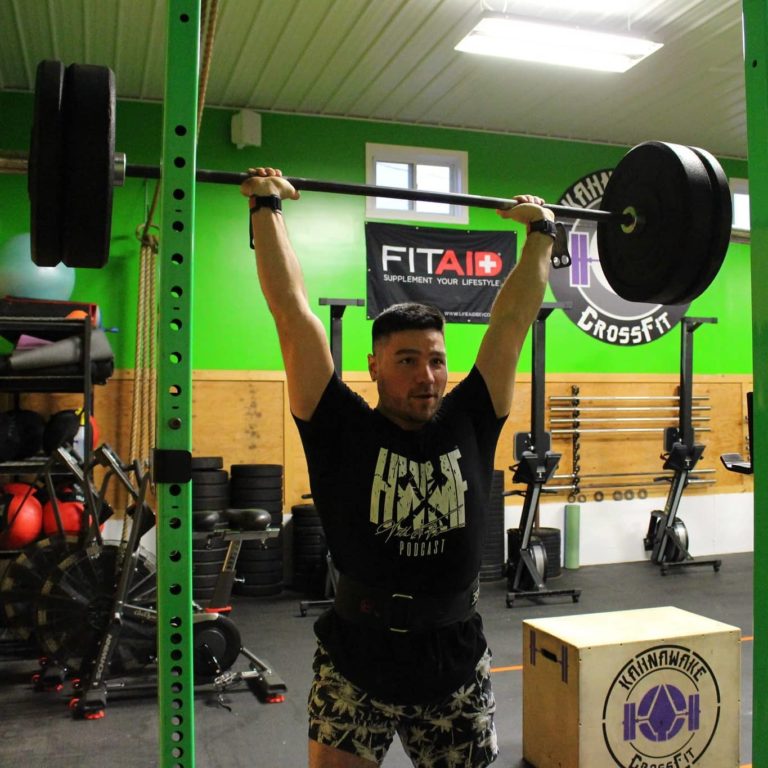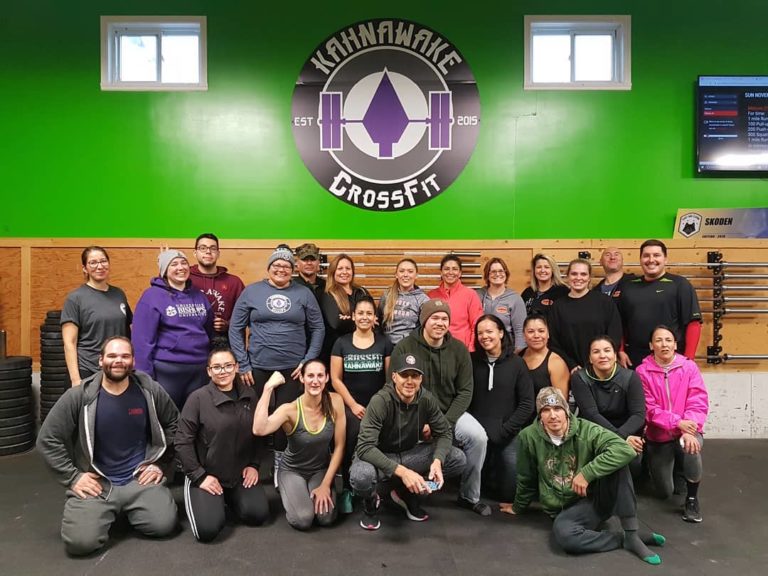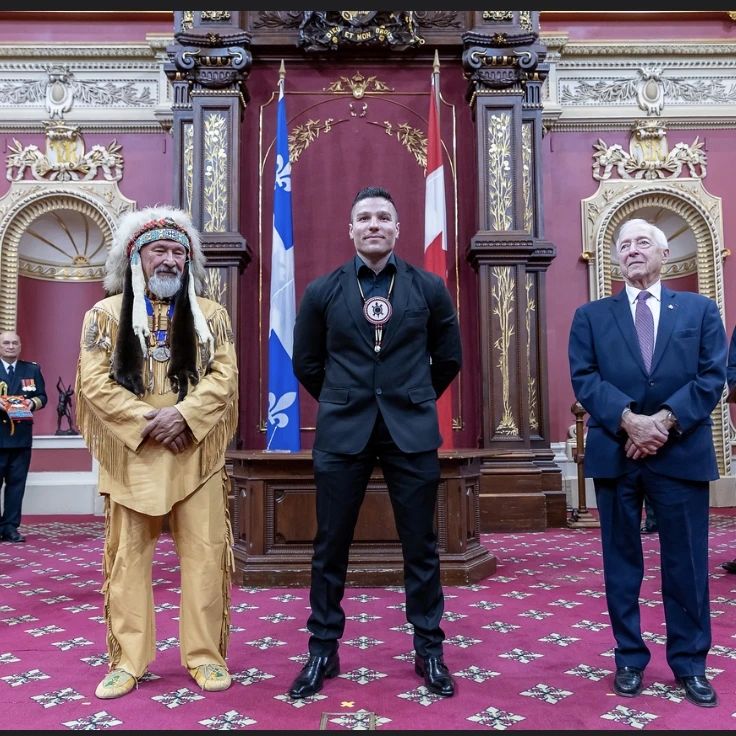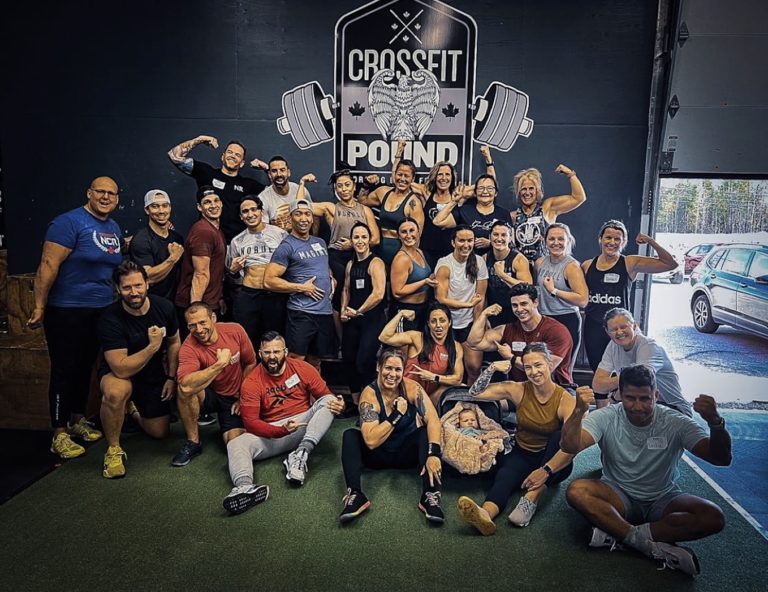Indigenous people make up about 5% of the Canadian population, and due in part to colonialism and systemic racism, the First Nations are more likely to experience persistent poverty and barriers to proper healthcare than other ethnic groups.
One reason is the lack of acceptance of indigenous health and healing models. In indigenous culture, health is not just about being healthy or sick; it’s about finding a balance between the mind, body, and spirit.
But a few members of the Mohawks of Kahnawake discovered a correspondence between CrossFit and these teachings.
CrossFit strengthens the body and prevents chronic disease while strengthening the mind through challenge and the spirit through community. And at Kahnawake CrossFit, the mission is to build confidence in indigenous people who have long believed they aren’t good enough.
Kahnawake CrossFit
Just outside Montreal, Quebec, lies the Kahnawake reserve, one of three communities in Quebec, Canada, representing the Mohawk people.
Growing up on the reserve, Satekaienton John Diabo found a passion for fitness at 17 years old. It’s how he built a relationship with his father and stayed out of trouble. Soon, he realized just how important health and fitness were for his community due to the barrier to healthcare, so he became a personal trainer and started to teach fitness classes on the reserve.
For years, Diabo studied academic journals and articles and practiced his coaching with his community. He didn’t go to college, but he became his own professor.

Satekaienton John Diabo | Photo courtesy of Diabo on Instagram
In May 2015, one of Diabo’s clients — Derrek Stacey — proposed opening a CrossFit gym on the reserve. Looking into the methodology more, Diabo realized that CrossFit was what the Kahnawake people needed to stay healthy. It had health benefits but also had the community.
“A sense of place and belonging was recognized as one of the factors affecting health,” says the First Nations Health Authority about early First Nations tribes. “First Nations communities thrived by working together to ensure their members were cared for so that the Nation remained strong.”
Six months later, Diabo, Stacey, and Stacey’s wife, Jadie, started to build Kahnawake CrossFit from the ground up.
Quite literally.
Hiring some help from the reserve, the gym was built from scratch. And in just four months, the gym was fully equipped to start running CrossFit classes.
“We really pushed the pedal on getting this project going,” Diabo said.
Meanwhile, Diabo attended a Level 1 Certificate Course to study the CrossFit methodology in order to teach CrossFit to his community. Three years ago, he took the Level 2 to touch up on his coaching technique.
For almost a decade, Kahnawake CrossFit has provided “a place for our people to gather and do something that is positive,” Diabo said.

Photo courtesy of Kahnawake CrossFit on Instagram
While promoting a healthy lifestyle in the community, CrossFit has also helped members overcome adversity.
“One advantage I have is we’re all similar,” Diabo said.
The indigenous people have long felt like outcasts. But through CrossFit, Diabo is teaching all 160 members that they are capable of doing anything anyone else can — and more.
Kahnawake CrossFit is also teaching the younger generation how to adopt a healthy lifestyle and stay out of trouble. Fitness helped Diabo avoid drugs and alcohol when he was young, and today he feels a responsibility to provide the next generation with a safe outlet and something to strive for.
On Dec. 15, 2022, Diabo received the Lieutenant Governor of Quebec’s First Peoples medal, which recognizes outstanding contributions by members of First Nations and the Inuit Nation, for his contributions to the health and well-being of his community.

Diabo receiving the Lieutenant Governor of Quebec’s First Peoples medal | Photo courtesy of Diabo on Instagram
The CrossFit Indigenous Council
Kahnawake CrossFit is just one example of the impact CrossFit has had on an indigenous community. But one man wants CrossFit to be widespread across the indigenous people.
Dr. Roger A. Boyer II, an indigenous director of comprehensive primary care, founded the CrossFit Indigenous Council. His mission was to recruit all indigenous people into the CrossFit community to show the world what the indigenous people are capable of.
“When you’re indigenous, you’re always trying to prove yourself because you’ve been pushed aside,” Diabo said.
A few years ago, Diabo joined the council to help Boyer increase CrossFit gyms on reserves and to help provide sponsored CrossFit courses to give indigenous people more opportunities through coaching and opening businesses.

The first CrossFit Indigenous Council CrossFit Level 1 and Scholarship program | Photo courtesy of the CrossFit Indigenous Council on Instagram
Truth and Reconciliation Day
Sept. 30 marks the National Day of Truth and Reconciliation in Canada.
“The day honors the children who never returned home and survivors of residential schools, as well as their families and communities. Public commemoration of the tragic and painful history and ongoing impacts of residential schools is a vital component of the reconciliation process,” says the government of Canada.
For the last four years, the CrossFit Indigenous Council has created a community workout to spread awareness about Truth and Reconciliation Day.
“For me, as a Mowhak, and as a person, (Truth and Reconciliation Day) means remembering what happened throughout history, never forgetting, and learning what’s to come ahead and trying to build better relationships,” Diabo said. “(Let’s) work together to make the world a better place.”
The 2024 Truth and Reconciliation Day WOD recognizes the many years of the Métis Resistance. View more information and the workout at the CrossFit Indigenous Council Instagram HERE.
A Healing Space
The CrossFit gym is healing space. It’s about boosting confidence and finding worth. It’s about preventing chronic disease and making the community healthier.
Most importantly, CrossFit shows the world how strong and capable the indigenous people are.
This article was originally published on Sept. 30, 2023. It was updated on Sept. 30, 2024.
Empowering the First Nations Through CrossFit
6